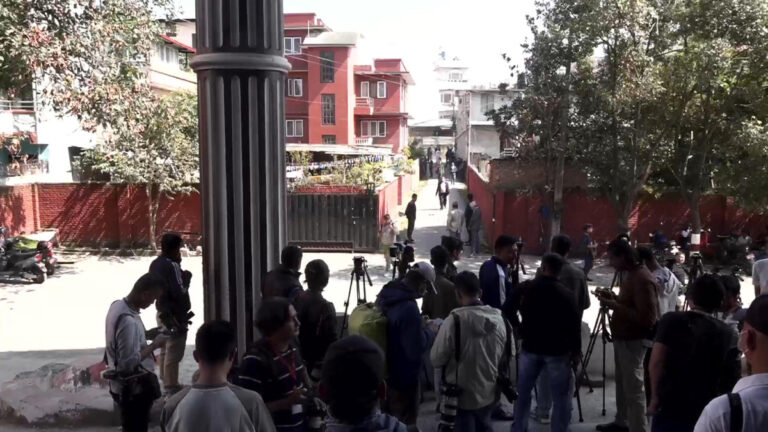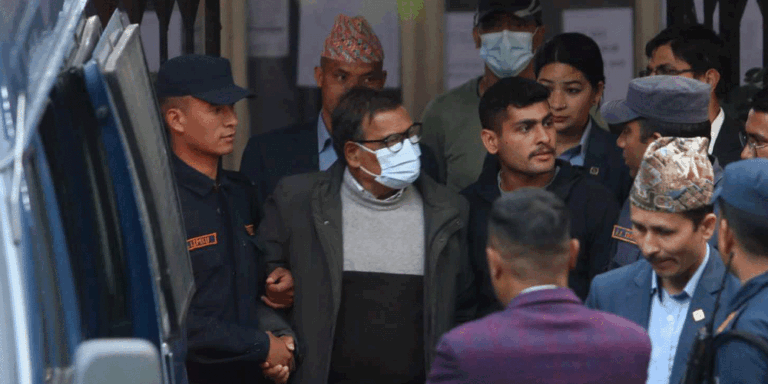
In a bold move propelled by the Gen-Z movement, the government led by Prime Minister Sushila Karki has launched investigations into the wealth and financial dealings of top political leaders who have long held sway over Nepal’s power structures. Among those under scrutiny are Nepali Congress President Sher Bahadur Deuba, CPN-UML Chairman KP Sharma Oli, and CPN (Maoist Centre) Chairman Pushpa Kamal Dahal ‘Prachanda’—including their family members.
According to sources, the Department of Money Laundering Investigation is actively gathering financial records and closely monitoring their banking, corporate, and real estate activities. The Nepal Rastra Bank has been asked to provide detailed account information, and steps are reportedly being taken to freeze the bank accounts of the leaders. Surveillance extends to securities transactions and property holdings.
Deuba, a five-time Prime Minister, is under investigation alongside his wife, former Foreign Minister Arzu Rana Deuba, and their son Jaiveer Deuba. Arzu faces long-standing allegations of exploiting her husband’s political influence for personal gain. She had previously been investigated in connection with the fake Bhutanese refugee scam and has also been accused of abusing power in appointments and transfers. Jaiveer, too, is reportedly involved in questionable contracts and business dealings.
Investigations are also progressing against former Prime Ministers KP Sharma Oli (UML) and Pushpa Kamal Dahal (Maoist Centre), both of whom face questions regarding financial transparency. Several corruption scandals surfaced during Oli’s tenure, but no significant legal action was taken.
Former Energy Minister and senior Nepali Congress leader Deepak Khadka is also under investigation. Authorities are reportedly probing money stolen or looted during the Gen-Z protest attacks on political leaders’ residences.
PM Karki’s Pledge: No Compromise on Corruption
In a national address, Prime Minister Karki declared that her administration would not compromise on corruption investigations. She reaffirmed her commitment during a cabinet meeting, stating, “I did not take this position out of desire. I came because the youth on the streets called for responsibility. I am not here for power or position—this is not my age for that. I came because I could not ignore the voice of Gen-Z.”
The Gen-Z movement’s core demands—ending corruption and ensuring good governance—are at the heart of Karki’s agenda.
Delay in Forming a High-Level Commission
Despite initiating high-profile investigations, the government has yet to form a high-level commission to lead comprehensive corruption inquiries. There is increasing public demand to establish such a body and to ensure justice through independent and impartial probes.
A Long Trail of Scandals Awaits Justice
Over the years, successive governments led by major political parties have been embroiled in corruption and smuggling scandals, but these cases have rarely seen impartial investigation or legal consequences. The powerful have often escaped justice under the shadow of political influence and legal loopholes.
Major unresolved scandals include:
- Lauda Air corruption
- Wide-body aircraft procurement
- Sudan scam
- Irregularities in Maoist cantonments
- Tax Settlement Commission scandal
- Lalita Niwas land grab
- Patanjali land deal
- Giribandhu Tea Estate
- Tikapur, Lichhibari, Balmandir, and Bansbari land cases
- Fake Bhutanese refugee scam
- Visa fraud case
- Omni medicine procurement
- Nepal Trust land scandal
- 33 kg and 60 kg gold smuggling
- Teramax IT procurement
- Excise duty sticker printing
- Melamchi project corruption
Instead of punishing the guilty, the previous Congress-UML coalition government allegedly worked to protect them through political deals. This failure to deliver justice triggered the Gen-Z uprising. The current government, born from that movement, now faces the challenge of delivering transparent investigations and ensuring that the corrupt are held accountable.



